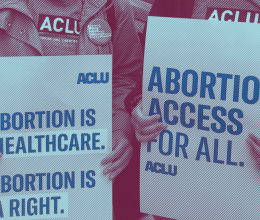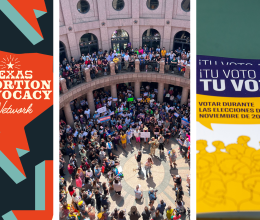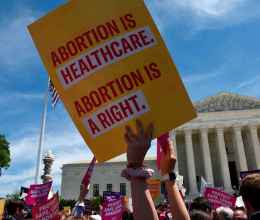
Update September 2021: The U.S. Supreme Court denied an emergency request to block SB 8, which took effect on Sept. 1, and forced almost all abortion in Texas to come to an abrupt stop. This ruling allows the law to remain in effect. The case will now proceed before the Fifth Circuit Court of Appeals. Click here to learn more about your rights to seek abortion care in Texas and for important resources.
Originally published July 14, 2021
During the Texas Legislature’s regular session in May, anti-abortion politicians yet again targeted the constitutional right to abortion care. They not only introduced a slew of extreme anti-abortion restrictions, they were laser-focused on eliminating abortion access altogether for people in Texas.
Several of those bills passed and became law, including SB 8, which bans abortions at about six weeks — before most people know they are pregnant. The law is blatantly unconstitutional: The Supreme Court has held for almost 50 years that states may not ban abortion prior to viability. Other states have passed this type of unconstitutional law, and courts have consistently blocked them. But Texas’ law is uniquely egregious. Rather than have the state enforce the law, the legislature chose a more sinister route.
SB 8 authorizes any person anywhere to sue a person who performed, aided and abetted, or intended to aid and abet an abortion in violation of the ban. That means that anyone — even someone unconnected to the person having the abortion — can try to dismantle abortion support networks by suing abortion providers and those who assist them, or even sue to try to stop the abortion and prevent the health care center from providing abortion care after approximately six weeks. The law also authorizes a significant bounty: a minimum of $10,000 in damages paid to the person who brought the lawsuit, if they are successful.
Whether incentivized by zealotry or monetary gain, SB 8 authorizes people to use the courts to harass and intimidate those who provide critical care and support to ensure that abortion access remains a reality in Texas. This means that abortion clinic staff, family members, clergy, domestic violence and rape crisis counselors, or referring physicians could be subject to tens of thousands of dollars in liability to total strangers.
Of course, this law won’t curb the need for abortion care. It will, however, make it much more difficult, costly, and dangerous to obtain one. If the law takes effect, many will not be able to overcome the obstacles to access care and will be forced to carry their pregnancies to term. And the people who will bear the brunt of the horrific effects of this law the most are our communities of color, our low-income communities, and our youth.
Not on our watch. Anti-abortion politicians may think it can use Texans like pawns in their ideological and extremist fight. But we’re calling their bluff, and will do everything we can to stop this dangerous law.






